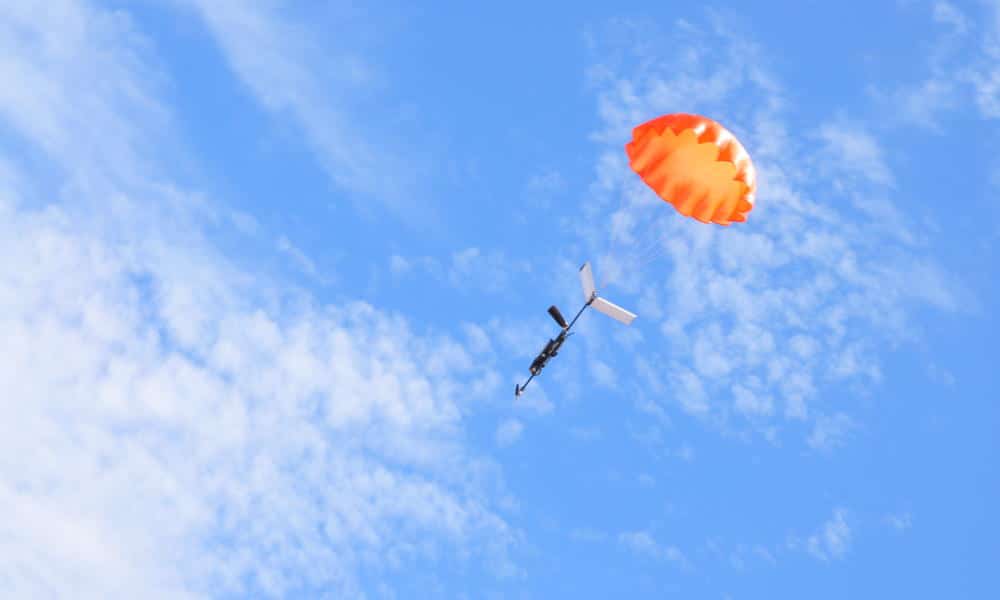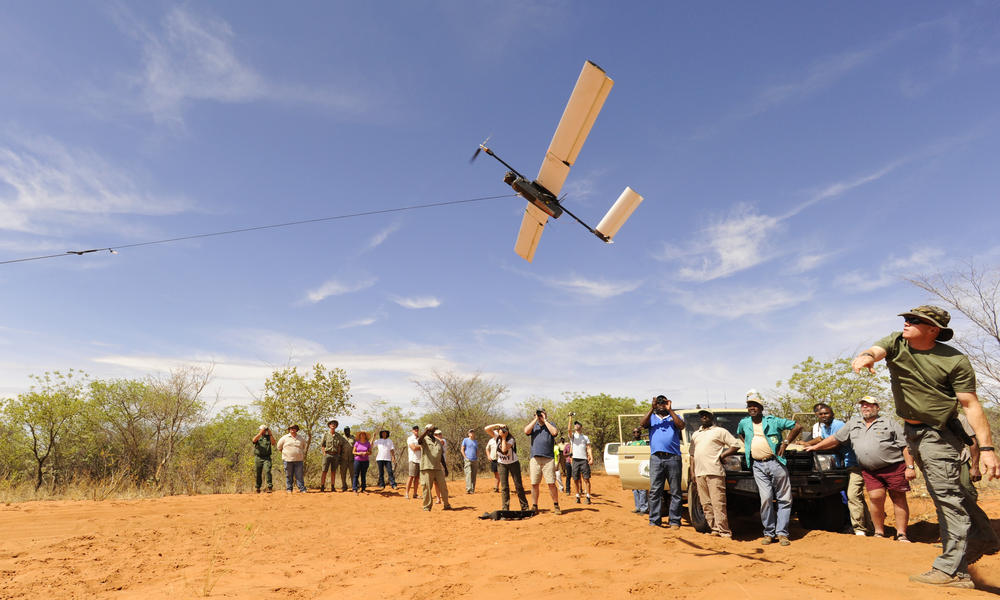United States (Washington)
Drones are being used to hunt down poachers in Namibia. Using US homeland security techniques, poachers are being tracked by Unmanned Aerial Vehicles (UAVs). Once spotted, rangers deployed on the ground find and arrest them. The Wildlife Crime Technology Project uses rifle recognition technology to alert to exact locations shots are fired, and the rhinos themselves are fitted with radio frequency identification chips that allow them to be tracked from the sky and on the ground.
Rhino poaching has reached epidemic proportions in Southern Africa. Illegal wildlife trade, estimated to be worth up to $10 billion annually, is emptying forests, landscapes and oceans of its rare creatures. These surveillance techniques shift the balance of power away from poachers and back into the rangers’ hands.
Based on the success of the pilot project in Namibia, the WWF plan to roll out the project in four sites in Africa and Asia that are home to endangered elephants, rhinos and tigers.
Bio
Claire Proudfoot is an international producer/ director based in London. The South African spends most of her time making content in sub-Saharan Africa about tech, healthcare and gender.
Project leader
Crawford Allan, Senior Director, World Wildlife Fund
Support the Atlas
We want the Atlas of the Future media platform and our event to be available to everybody, everywhere for free – always. Fancy helping us spread stories of hope and optimism to create a better tomorrow? For those able, we'd be grateful for any donation.
- Please support the Atlas here
- Thank you!

The Falcon UAV unpiloted aircraft was trialed in Namibia with the WWF Wildlife Crime Technology Project and Namibian Ministry of Environment & Tourism


